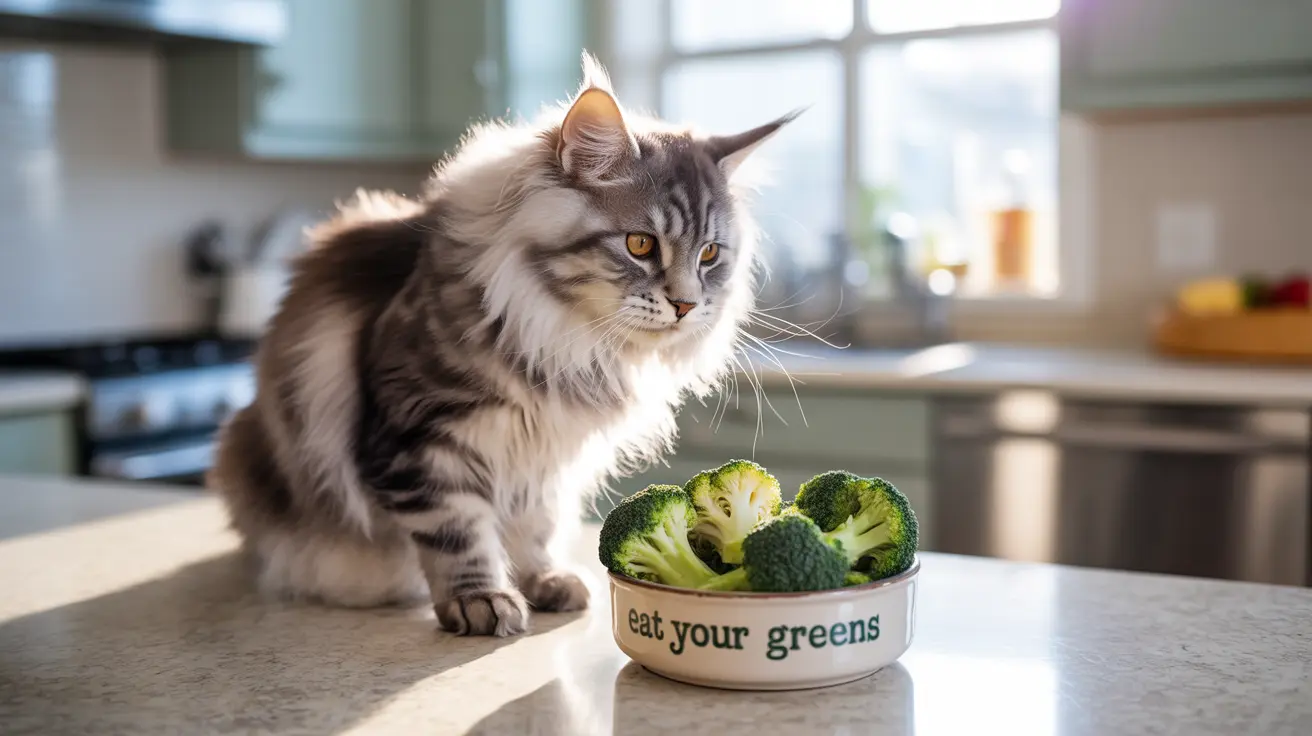Many cat owners wonder about sharing human foods with their feline companions, and broccoli often comes up as a topic of interest. If you're considering adding this green vegetable to your cat's diet, you'll be relieved to know that broccoli is generally safe for cats when offered properly. Let's explore everything you need to know about cats and broccoli.
While cats are obligate carnivores who primarily need meat-based nutrition, certain vegetables can serve as occasional treats. Broccoli, in particular, offers some nutritional benefits when served in moderation and prepared correctly.
Understanding Broccoli's Safety for Cats
Broccoli is non-toxic to cats and has received approval from veterinary experts and the ASPCA as a safe vegetable option. Unlike harmful vegetables such as onions and garlic, broccoli poses no inherent dangers to your feline friend when served appropriately.
However, safety depends largely on proper preparation and portion control. The vegetable should always be thoroughly washed, cooked, and cut into manageable pieces to prevent choking hazards.
Nutritional Benefits of Broccoli for Cats
While cats don't require vegetables in their diet, broccoli can offer some supplemental benefits:
- Antioxidants that help combat free radicals
- Dietary fiber for digestive health
- Essential vitamins including K and A
- Minerals such as iron and potassium
- Folic acid for cellular health
It's important to note that cats process nutrients from animal sources much more efficiently than from plant sources. Therefore, broccoli should be viewed as a supplement rather than a dietary staple.
How to Safely Prepare Broccoli for Your Cat
Proper Preparation Methods
Follow these guidelines when preparing broccoli for your cat:
- Steam or boil the broccoli until soft
- Cut into very small, bite-sized pieces
- Serve plain without any seasonings, oils, or additives
- Allow to cool completely before offering
- Start with tiny amounts to test tolerance
Portion Control and Frequency
Moderation is key when feeding broccoli to cats. A few small florets occasionally is sufficient - think of it as a treat rather than a regular meal component. Too much can lead to digestive issues, particularly in cats with sensitive stomachs.
Potential Risks and Considerations
While broccoli is safe, there are some important considerations:
- Cats lack efficient enzymes for digesting plant matter
- Large pieces can pose choking hazards
- Excessive consumption may cause digestive upset
- Some cats may show allergic reactions
- Never use broccoli as a replacement for proper cat food
Monitoring Your Cat's Response
When introducing broccoli to your cat's diet, watch for these signs:
- Changes in bathroom habits
- Signs of digestive discomfort
- Unusual behavior or lethargy
- Allergic reactions like itching or swelling
Frequently Asked Questions
Can cats safely eat broccoli, and what health benefits does it provide?
Yes, cats can safely eat broccoli in moderation. It provides antioxidants, fiber, and various vitamins and minerals, though cats primarily need nutrients from meat-based sources.
How should I prepare broccoli before giving it to my cat?
Steam or boil the broccoli until soft, cut it into very small pieces, and serve it plain without any seasonings, oils, or additives.
How much broccoli can I feed my cat without causing digestive problems?
Offer only a few small florets occasionally as a treat. Too much can cause digestive upset, so start with tiny amounts and monitor your cat's response.
Are broccoli stalks and leaves safe for cats to eat?
While not toxic, stalks pose a higher choking risk and should be avoided. If offered, stick to small, well-cooked florets.
Can feeding broccoli to cats help reduce their interest in eating toxic houseplants?
While some cats may show less interest in houseplants when offered safe alternatives like broccoli, this shouldn't be relied upon as a deterrent strategy for protecting cats from toxic plants.
Remember, while broccoli can be a safe and healthy treat for your cat, it should never replace their primary meat-based diet. Always consult with your veterinarian before making any significant changes to your cat's diet.






